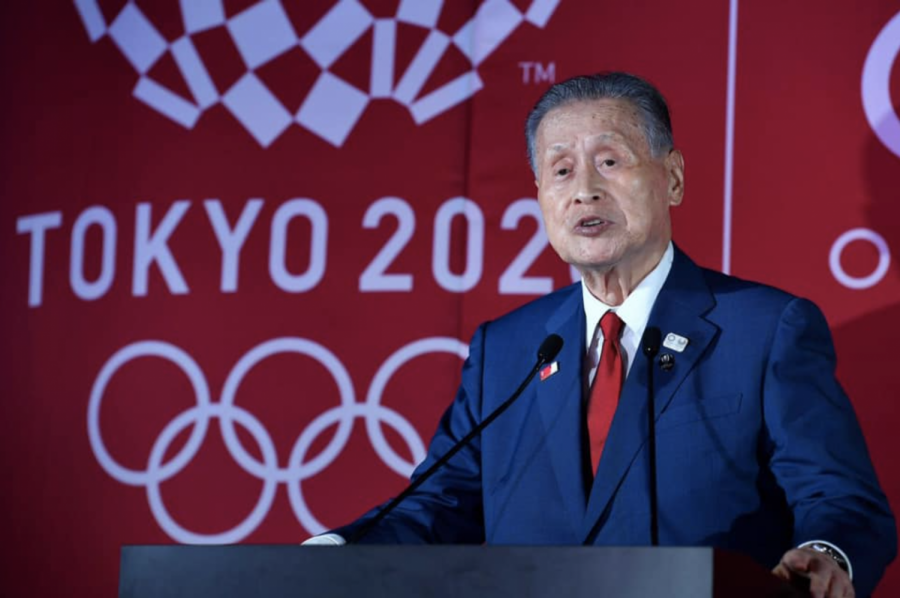Olympics Chief Makes Sexist Remarks Amidst COVID-19 Crisis
In light of the pandemic, athletes and spectators around the world have questioned the morality of holding the 2021 Olympic Games. Despite rising cases and the slow distribution of the newly developed COVID-19 vaccine, organizers of the Tokyo games have remained tenacious in their efforts to hold the event this upcoming summer. However, holding the games will result in greater detriments than benefits, but this is not the only ethical challenge regarding the Tokyo games.
The president of the organizational committee, Yoshiro Mori, received criticism this past week after making sexist remarks. During an executive meeting, Mori responded to a question concerning the committee’s claim that they would be increasing the number of female board members. Currently, women only make up 40% of the committee’s population.
Amused, Mori said that “on boards with a lot of women, the board meetings take so much time … women have a strong sense of competition. If one person raises their hand, others probably think, ‘I need to say something too.’” He elaborated, saying that adding more women would be a hindrance to the productivity of the committee, as they “talk too much.”
This offensive and baseless statement caused an eruption of backlash from all sides. On Twitter, Olympic enthusiasts immediately brought attention to Mori’s misogynistic comments with some calling for his resignation. He offered an explanation and apology, saying that he “deeply regrets” what he said but claimed that he would not resign.
Mori attempted to show his appreciation for the women currently on the board saying that their “sophisticated” and “useful” qualities have not gone unnoticed during planning — but this did little to remedy his derogatory remarks.
Following this apology, the board received overwhelming criticism from Olympic sponsors, social media users, newscast commentators and an online petition that collected 150,000 signatures in support of Mori’s resignation. Additionally, a poll taken in Japan showed that 60% of the population believed he was no longer qualified to serve as chief. With these complaints in mind, Mori announced that he would be stepping away from the position.
The International Olympic Committee (IOC) released a statement, writing that Mori’s comments were “absolutely inappropriate,” and “contradict the commitments and reforms of the 2021 Olympic agenda.” Board representatives have declined to comment on who they will appoint as the new chief, but many hope the position will be filled by a woman to answer the calls for gender equality within the committee.
Despite the necessity of Mori’s expulsion on the basis of equality and propriety, his resignation further complicates the upcoming Olympic Games. He served as one of the most resilient planners, insisting that the games take place despite many obstacles. Representatives of the IOC remain adamant that the games will commence in July, but this vigor is not shared amongst Tokyoites.
In a survey conducted by the Kyodo news agency, 80% of the Japanese population reported that they believe the games should be canceled or further postponed — and with good reason. The consequences of holding this event will likely be severe. Financially, the IOC cannot afford to fund another postponement, but holding such a large event during the pandemic puts the health and safety of participants and Tokyo residents at risk. Thomas Bach, head of the IOC, has released numerous comments showing his unwavering confidence that no “Plan B” needs to be set in place.
Recently, organizers have released a “playbook” for competing athletes, consisting of loose social distancing and testing protocols. This rulebook is 32 pages long and glosses over and negates the severity of the virus. It is clear that these rules were released hastily in an attempt to appease critics.
It is undeniable that the Olympics cultivate a sense of community and unity among nations. The games show that despite the many differences in culture and lifestyles, individuals around the world can find common ground through sport. It may seem as though this unifying event is what is needed to soothe the divisive nature of the world — but is this worth the cost of human life?
Amidst Mori’s recent scandal and the gravest public health crisis in the last century, the IOC must consider further postponing the Olympics. The sense of unity that the games promote has been lost as committees are continuing to plan despite the public’s incontestable disapproval. The devastating effects of COVID-19 and a year without the coveted Olympics is disappointing and almost inconceivable — but it is now more important than ever to preserve the health and safety of those around us.
Madeline Byrne, FCRH ’23, is a psychology major from Freehold, N.J.








































































































































































































